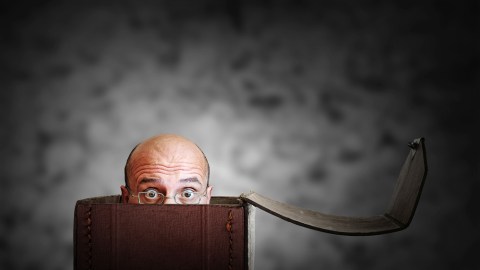A Little Cowardice Is Bad. A Lot Results in Peace.

In times when going off to war was a badge of courage, deserting was tantamount to treason. In England, the offense was once punishable by death. But why do we punish and shame people so severely for wanting to stay alive, or avoid a conflict they probably didn’t seek in the first place?
At the root of cowardice is fear, but that emotion confers a healthy evolutionary advantage when it comes to high-risk situations. If one doesn’t fear leaping from great heights, one will become a splat on the pavement in short order. Someone is judged as cowardly, then, by having fear that is out of proportion to the danger he or she faces.
“[P]erhaps we need a coward in the room when we are talking about nuclear war,” said US ambassador to the UN during the Cold War, Adlai Stevenson.
But if the stakes are low and the fear is high, to whom is the coward a danger? And if he or she is not a danger to anyone but him or herself, what good does criticism do? Ironically, cowardice may tell us something moral and essential about our motives.
During the Cuban missile crisis in 1962, US ambassador to the United Nations Adlai Stevenson observed that “most of the fellows will probably consider me a coward … but perhaps we need a coward in the room when we are talking about nuclear war.”
If the draft had not been abolished, would we have gone into Iraq?
Were it not for the draft during the Vietnam War, officials may have prolonged the conflict. Today, a draft is largely considered a political impossibility. Afghanistan, in which there has been no draft, became America’s longest running war.
Without a draft, conflict is moved further from the public eye; citizens give officials less scrutiny when violence is done on behalf of the nation. If the draft had not been abolished, would we have gone into Iraq? Definitely not, says Carl Bernstein, who shares a Pulitzer Prize with Bob Woodward for their investigation of the Watergate scandal.
“The end of the draft has permitted a cowardly politics, a huge consequence to who we are as a people.”
Read more at Aeon.
Photo credit: Shutterstock




